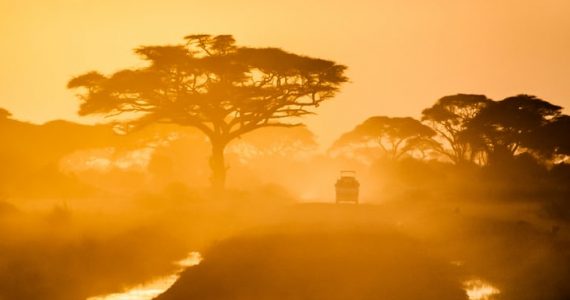
Sexual Orientation is not a Fashion Statement
Disclaimer: The views and opinions expressed in this article are those of the author and do not necessarily reflect the opinion of IFAIR e.V. or its members.
One step backwards, two steps forwards – LGBTs facing a social stigma in Africa
With the High Court’s judgment from June 11th 2019, judge Michael Elburu suspended section 164 a and c and section 165 of the Penal Code from 1965 which punish same-sex relations in Botswana with up to seven years in prison and ordered to modify section 167. In recognising the discriminatory nature of the laws in question, the Botswanan High Court gave hope to the LGBT (Lesbian-Gay-Bisexual-Transgender) community to introduce LGBT rights in Africa and so their decriminalisation by the jurisdiction. Nearly simultaneously, on May 24th 2019, the High Court in Kenya refused to recognise any relationship between persons of the same sex as constitutional and section 162 and 165 of the Kenyan penal code as discriminatory. Section 162 penalises “carnal knowledge against the order of nature” with up to 14 years in prison, while section 165 sanctions “indecent practices between males” with up to five years in prison. The Kenyan High Court did not see evidence to change the penal code, so that homosexuality remains illegal on Kenyan ground as in most African countries.
Homophobia in Africa
As a relic of Victorian Zeitgeist introduced by the colonial governments, sodomy is still a felony in 31 sub-Saharan African countries and in North Africa. The former adopted their own domestic legal systems, continuing the legal traditions and moral concepts. In many sub-Saharan countries those laws, criminalising same-sex consensual sexual conduct, same-sex relationships and the perceived expression of LGBT identities, are being justified on the basis of moral, cultural and religious arguments; homosexuality is defined as chosen conscious sexual behaviour, as western import and mainly as non-African. Robert Mugabe, the recently deceased Zimbabwean revolutionary and dictator, stated in the 70th UN General Assembly in 2015: “We equally reject attempts to prescribe ‘new rights’ that are contrary to our values, norms, traditions, and beliefs. We are not gays!” It shall be noted that among the pre-colonial African countries and tribes, cultures or traditions explicitly requiring to punish same-sex relation did not exist.
In some Islamic or Islamic influenced African countries homosexuality is even punishable by death penalty due to the Sharia law. This is the case in Mauretania, the North of Nigeria, Sudan and the southern parts of Somalia. Likewise, Uganda tried to introduce death penalty for sodomy-acts in 2013.
Particularly gay men are targeted by discrimination on the part of state actors; however, they also enjoy more freedom. Lesbianism, on the other hand, hardly enters public discussions and remains in silence. Lesbian women accused of betraying their traditional role in a patriarch society, suffer under harassment by their family members and neighbours and a lack of possibilities to live out their sexuality.
On the contrary, there are also positive tendencies in the African legislation supporting LGTB rights in Africa: Angola decriminalised gay and lesbian relationships in 2018, following the Seychelles and Mozambique in 2016 and 2015. South Africa is the only African country in the constitution of which rights based on sexual orientation are explicitly written down. Promulgated in 1996, it gives account to the significant link between racism and homophobia as well as some important court decisions. But even in countries that do not have anti-sodomy laws in their legal codes, the rights of LGBTs are not guaranteed; a strong rule of law does not protect homosexuals from facing a social stigma.
Criminalisation of Homosexuality in Africa through the lenses of human rights
According to Amnesty International’s report about the criminalisation of same-sex conduct in sub-Saharan Africa from 2013, homosexual acts are being increasingly criminalised across Africa. According to the report, the homophobic discrimination is not only caused by society, but first of all by state actors strengthened by law. The only existence of such laws creates a permissive environment to harass and marginalise LGBT people. Moreover, laws that criminalise same-sex behaviour legalise discrimination as given from the state.
Authorities and state actors applying the law, e.g. the police, do so in an arbitrary or discriminatory manner, abusing them as a justification to harass LGBT people. Homosexuals are arrested, prosecuted and sentenced by authorities and state actors simply based on their sexual orientation, rather than due to misconduct. This is a violation of their personal liberty. And even if the laws are not actually applied, by merely maintaining them, states nevertheless cause LGBT persons to live in fear of prosecution. This is a result of the criminal connotation they receive by the laws upheld by the states which neglect their obligation to protect LGBT people through this.
Violating individuals based on their sexual orientation and gender identity, as it is the case in 38 of 54 African countries, is an abuse of fundamental human rights: the right on privacy, dignity and equality. In 2011, the first United Nations resolution on sexual orientation and gender identity took place, expressing “grave concerns” and stating that further action was needed, especially at a national level, as individuals need better protection from human rights violations based on sexual orientation and gender identity in the future. The Human Rights Council, as a follow-up and implementation of the Vienna Declaration and Programme of Action, obligated states to prevent violation and discrimination and to protect LGBTs’ rights on a constitutional level using the right to human dignity, applicable for all human beings regardless their sexual orientation and gender identity, as an instrument of inclusion. The Council promoted universal respect for the protection of all human rights and fundamental freedoms “without distinction of any kind and in a fair and equal matter for all people, including lesbians, gays, bisexuals and transgender.” This resolution, introduced to the United Nations by South Africa and Brazil, was based on a declaration from 2008, the opposing statement to which was signed by mostly African (and Arabic) countries explaining that it was not in line with African culture.
Socio-economic impact on the exclusion of LGBT
The discrimination of LGBTs by law and society has a remarkable implication on a socio-economic level. While wealthier people are in a way protected through their economic privilege, poor LGBT people are more vulnerable according to the report of Amnesty International. People of a lower socio-economic level are more at risk to be discriminated in a social context which can impact their economic situation, when for example losing their job, being expelled from the education system or being refused access to social services which often use the discriminatory laws as a reason for refusal. Social opportunities such as education and health care facilitate economic participation; in turn the hindrance on social opportunities leads to economical poverty.
Furthermore, the socio-economic downside of being homosexual in Africa affects the access to an adequate medical health care which is especially important when it comes to AIDS and preventive (sex) education. African Men who have sex with men are nine times more likely to be HIV positive than heterosexual Africans.
LGBT people are precluded from exercising their rights, e.g. on property, health, education etc. Their access to sustainable and positive development through economic growth as an instrument for realising human rights is restrained. In excluding a part of the population by law instead of including them by prohibiting their discrimination, the LGBT community as a part of the population is hindered to participate in a national development process in Global South countries in Africa. However, without the participation of any individual as carrier of rights, there cannot be sustainable development for the society. And without adequate social opportunities individuals cannot effectively realise their full potential and make their contribution to society and economy. Law has to adapt the external reality of the LGBT movement in shaping and opening economic structure and organisation towards social tolerance through overlapping and conflicting law and jurisdiction. This, in consequence, could facilitate the approach of LGBTs with society and vice versa in connecting and integrating homosexual culture and lifestyle to make the most effort for the community and economy.
Conclusion
The documentation of human rights violations on the basis of sexual orientation and gender identity as by UN has shown that particularly in African countries homosexuality is a contentious topic on continental level. Some African countries argue that, among others, homosexuality and different gender identities are not culturally accepted in their countries and for that reason cannot be included by the constitutional human rights protection. Others, on the other hand, have passed – or are in the process to do so – positive legal developments in regards of the protection of human rights for everyone including LGTB people. Especially South Africa plays a leading role in international recognition of gay rights. Africa as part of the Global South is still in need of decolonialisation of jurisprudence and discriminatory laws regarding sexual orientation and gender identity. What was actually imported to Africa by the colonial states was not homosexuality, but homophobia. Homosexuality is not a chosen attitude or fashion statement, as Michael Elburu stated lately, but an expression of one’s sexual and emotional attraction and need for affection which cannot be influenced. What can be influenced and changed, however, is homophobia: firstly, in the heads of the general public, the religious and political leaders and further, on a legal level through jurisdiction. In that process, since change does not come overnight, courts can play an important role interpreting the Constitution in order to realise the needed protection of LGBT people in Africa. In either way European and American jurisdiction have shown that judges have the power to change the direction of the prevailing jurisdiction arguing for the rights of LGBT people.

Sophie Hoffbauer
Sophie is a third year law student at Humboldt-Universität Berlin. She participated in the annual Law and Development Research Network Conference in Berlin and wrote her article for the symposium of the conference. Sophie speaks German, English, Italian and French.
